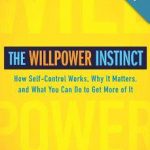 World War Z: An Oral History of the Zombie War by Max Brooks
World War Z: An Oral History of the Zombie War by Max Brooks
My rating: 5 of 5 stars
Let me preface this by saying I am not a zombie, a zombie killer or in any way affiliated with zombies. In fact, until this book, I kind of looked down my nose at the zombie genre, until my most beloved (and only) brother gave me the book for my birthday. I kind of had to read it, since my brother is awesome and I really wanted to see the movie (for reasons totally unrelated to zombies, and more of the “Brad Pitt” variety).
But was I in for a paradigm shift!
First of all, this is not a “zombie book.” It’s a book about a zombie apocalypse, yes, but that’s like saying Buckingham Palace is a house. This is a masterfully done, impeccably researched fictional oral history set 10 years after a virus turns the vast majority of the human population into brain-eating undead. Besides the “undead” portion of the premise, everything else is perfectly, beautifully realistic. The characters have conflicts and quirks. The settings are well-described.
The author (son of Mel Brooks and Anne Bancroft – how cool is that?) uses the fictional (I think?) zombie apocalypse to comment on modern society, its failures and weaknesses. But he also delves into what makes us survive. It’s never simplistic, never feel-good, always complex and well thought out.
The story is told from the point of view of a researcher compiling an oral history from the survivors of the attacks, from the first inklings that something is wrong to the point where it seems like the human race might possibly be wiped out. He does this from the perspective of people all over the world, good guys and bad guys, big players and “little” people who just happen to escape with their lives. The pacing is perfect and he doesn’t miss a beat. I am a big fan of post-apocalyptic fiction, and often, even in a great “end-of-the-world” book you find yourself asking, “Why didn’t they just…” In World War Z, the author has thought of all those questions and answered them, leaving a satisfying page-turner that I know I’ll read again, because once wasn’t enough.





